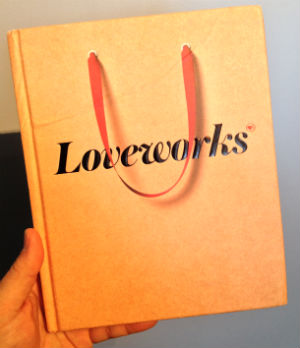 Apple. Google. Disney. These are some of the most admired and in many cases, loved brands in the world. No doubt, many companies are envious of the connection these top brands have been able to make with their customers. A strong connection between brands and consumer manifest in many ways from retention to word of mouth to premium pricing.
Apple. Google. Disney. These are some of the most admired and in many cases, loved brands in the world. No doubt, many companies are envious of the connection these top brands have been able to make with their customers. A strong connection between brands and consumer manifest in many ways from retention to word of mouth to premium pricing.
As companies focus in on creating more content and utility in their marketing, more organizations are beginning to realize the importance of creating an emotional connection. This is along the lines of meaningful vs. mechanical marketing I’ve often talked about.
I was reading a book recently that focuses in on exactly this topic: Loveworks: How the world’s top marketers make emotional connections to win in the marketplace by Brian Sheehan. Brian agreed to do a guest post answering a pretty important question in today’s age of information overload: What makes a company loved?
 People today do not find government or business very trustworthy, let alone worthy of their love. The 2013 Edelman Trust Barometer showed “a serious crisis of confidence in leaders of both business and government.” Trust in the institutions of government and business themselves is up on 2012, but still tepid. Globally, business is 58% and government 48%.
People today do not find government or business very trustworthy, let alone worthy of their love. The 2013 Edelman Trust Barometer showed “a serious crisis of confidence in leaders of both business and government.” Trust in the institutions of government and business themselves is up on 2012, but still tepid. Globally, business is 58% and government 48%.
Business may be the best bet for improving global life, but winning people’s trust is only the start. The good news is there’s a higher path. As a marketer turned academic, I’ve recognized a pattern in the most successful companies across sectors and geographies. These companies apply 10 universal elements to become not just liked, trusted, respected or admired — but flat-out loved.
Putting love in the same sentence as business occasionally meets resistance, but love occupies premium territory for margin, share, growth and preference, and makes the world a better place. Love works; here are the 10 elements of a Lovemarks Company:
- A Loved Company is driven by Purpose. Purpose is the thread that binds great companies, their people and their customers. Purpose is the dream of the entrepreneur that flows through the enterprise, from Sam Walton bringing choice into the lives of millions of people to Bill Gates’ computer on every desk and in every home. If there is no dream, the company derails.
- A Loved Company Inspires People. Being loved is not about satisfying or persuading people, the modus operandi of brands. Love is about inspiring people, about lifting their lives through innovation (Procter & Gamble), distribution (Amazon) communication (Toyota) or in other magic ways. Love answers the big question: “How will you improve my life?” Priceless.
- A Loved Company is Emotional. It sounds obvious, but how many companies are emotional? How many understand what separates their customers from others and plumb those differences to speak to the hearts of users and non-users alike? Big Data wants to, but it will never match the irresistible human touch, from the flying fun that Virgin Atlantic delivered to the authenticity of the Miller High Life Delivery Man.
- A Loved Company Uncovers Truth. Most research produces insights that are not insightful because what people say they do and how people actually behave is different. A loved company uncovers the truths needed to deliver what matters to people by getting closer to people. For example through exploration, Guinness got the revelation that there is a “Drop of Greatness” in every African man.
- A Loved Company is a Creative Leader. Only creativity has unreasonable power and the more that brands look the same the more there is a premium on originality. From the Ford assembly line through to the ground breaking Toyota Prius, the companies that inspire love will always be those that do what Apple did, “Think Different.”
- A Loved Company Has a Rallying Cry. Revolution begins with language and a rallying cry is a way to drive purpose to action, both inside and outside the company. Whether it’s a statement (Lenovo. For Those Who Do.), a challenge (Lexus – Pursuit of Perfection) or a visual cue (Cheerios), a rallying cry creates a higher meaning to inspire a greater involvement.
- A Loved Company Has People Power. Loved companies win because in a time of viral velocity, a ‘Participation Economy,’ they build a movement and inspire more people to join them. Whether it’s through igniting customer passions or capturing the popular imagination ‘Gangnam Style’, people power accelerates results through emotion, participation, celebration and sharing.
- A Loved Company Has Mystery. The less we know about something, the more interesting it gets. This is mystery, the powerful realm of inspiration, dreams, icons, myths and stories, and past / present / future together. Winning is about a shared journey with a clear trail to follow. An unfolding always-interesting narrative.
- A Loved Company Has Sensuality. People operate on all five senses. Most brands operate on one or two. Lovemark companies evoke responses across all the senses. Argentina’s top home appliance brand BGH changed out the ‘beep’ of a microwave for your favorite song. A German bank visualized its annual report with art installations. Sensuality is a gateway to the real world that engages people.
- A Loved Company Has Intimacy. This is the company putting itself in the heart of the audience. Not putting customers at the heart of what the company does, but asking to be invited into their individual hearts, and doing it through empathy, commitment and passion. The Ritz-Carlton switched “Please stay with us” to “Let us stay with you.”
Love works in business, try it.
This guest post is © 2013 Brian Sheehan, author of Loveworks: How the world’s top marketers make emotional connections to win in the marketplace
Besides being the author of Loveworks: How the world’s top marketers make emotional connections to win in the marketplace, Brian Sheehan is Associate Professor of Advertising at the S.I. Newhouse School of Public Communications, Syracuse University and was previously at Saatchi & Saatchi for 25 years.


